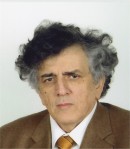
Plenary Lecture
On the Inversion of Adjacent Tridiagonal and Pentadiagonal Matrices

Professor N. A. Baykara
Marmara University, Mathematics Department
Istanbul, TURKEY
E-mail: nabaykara@gmail.com
Abstract: Pentadiagonal as well as tridiagonal matrices have a wide number of applications in various fields of science, like mechanics, image processing, mathematical chemistry, etc.. For example, in fluid mechanics which is a commonly used subject, the number of meshes necessary to obtain reasonably good results is at times expressible in millions. Powerful techniques were developed to solve such systems. In the most common of these methods, inverses of tridiagonal and pentadiagonal matrices are encountered. Numerical inverses of band matrices as well as full matrices are amongst the topics for which serious difficulties in computations arise, perhaps not from a theoretical point of view but from the point of view of the computational time required. A rather inexpensive method was suggested by Huang and McColl initially for the inversion of symmetric tridiagonal and later for the general tridiagonal matrices. It turned out to be employable for the case of strictly diagonally dominant matrices which are quite widely encountered within many applications in literature. Needless to say it is very well known that such matrices can be shown to be non-singular and hence invertable. A similar but of course slightly more complicated method was developed for the inversion of adjacent pentadiagonal matrices by Kanal and Baykara. Kanal has also developed a parallel algorithm for the suggested method. Other methods to the same end were developed by Zhao and Huang and also by Hadj and Elouafi. The method of Zhao and Huang seems to somewhat suffer from computational complexity since it is of O(N3). Recently, the mathematical structure of the method suggested by Kanal and Baykara was investigated in detail and it was also shown that it is faster than the method of Hadj and Elouafi.
Brief Biography of the Speaker: N. A. BAYKARA was born in Istanbul,Turkey on 29th July 1948. He received a B.Sc. degree in Chemistry from Bosphorous University in 1972. He obtained his PhD from Salford University, Greater Manchester, Lancashire,U.K. in 1977 with a thesis entitled “Studies in Self Consistent Field Molecular Orbital Theory”, Between the years 1977–1981 and 1985–1990 he worked as a research scientist in the Applied Maths Department of The Scientific Research Council of Turkey. During the years 1981-1985 he did postdoctoral research in the Chemistry Department of Montreal University, Quebec, Canada. Since 1990 he is employed as a Staff member of Marmara University. He is now a Full Professor of Applied Mathematics mainly teaching Numerical Analysis courses and is involved in HDMR research and is a member of Group for Science and Methods of Computing in Informatics Institute of Istanbul Technical University. Other research interests of his for him are “Density Functional Theory” and “Fluctuationlessness Theorem and its Applications” which he is actually involved in. Most recent of his concerns is focused at efficient remainder calculations of Taylor expansion via Fluctuation–Free Integration, and Fluctuation–Free Expectation Value Dynamics.